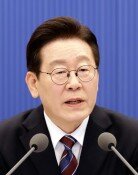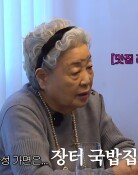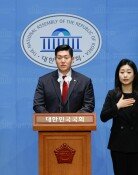[Analysis] Proposed Inter-Korean Summit Faces Hurdles
[Analysis] Proposed Inter-Korean Summit Faces Hurdles
Posted February. 02, 2010 09:01,
President Lee Myung-bak has hinted at holding an inter-Korean summit this year, with his recent comments also interpreted as open messages to North Korean leader Kim Jong Il.
President Lee said the venue does not have to be Seoul, both sides could hold talks this year, and the moment is approaching when Pyongyang ultimately decides to abandon its nuclear program.
Both Koreas are exploring the possibility of an inter-Korean summit through diverse channels, such as the South Korean Unification Ministry and the working-level channel of the unification bureau of North Koreas ruling Workers Party.
A key figure of the Souths ruling Grand National Party said yesterday, The curtain has yet to open and its only the beginning.
The Lee administration apparently recognizes the need for a summit for fundamental improvement in inter-Korean relations, but seems to have a lot on its plate.
For starters, there is the problem of venue. The North will most likely host the event in Pyongyang, Kaesong or Mount Kumgang. President Lees comment that the summit need not be in Seoul apparently stems from the view that the summits substance is more important than venue.
The South also seems to have considered Kims health and the difficulty of him leaving the North for an extended time due to the problems of his government.
Nevertheless, conservative parties in the South will likely oppose President Lee going to the North for the summit, insisting that the venue be Seoul. Therefore, the Lee administration will probably go into the summit under pressure to obtain tangible results on the Norths denuclearization and South Korean POWs and abductees being held there in the face of conservative opposition.
In a BBC interview Friday, President Lee said, There should be no preconditions for an open-minded meeting for reconciliation and cooperation. This is seen as him urging North Korea to participate in the summit without asking for something in return as it has done in the past.
In other words, he indicated holding a heart-to-heart talk with Kim on resolving the nuclear issue and providing economic aid instead of making small deals prior to the summit. In the same vein, he said in a CNN interview aired Saturday said he is open to discussion of his grand bargain proposal.
The question is whether the North is willing to abandon its nuclear ambition and how to verify its denuclearization. If Seoul provides economic assistance in return just for a promise from Pyongyang that could easily be broken, the Lee administration will face criticism that nothing has changed in the Souths policy toward the North.
When a South Korean Unification Ministry director and a North Korean official held secret negotiations Nov. 7 and 14 last year in Kaesong, North Korea reportedly stuck to its position of only allowing expressions such as progress in nuclear issues.
A South Korean ruling party figure well versed in diplomacy and national security said, The (South Korean) government can also use reverse salami-slice tactics that provides support according to each implemented phase of North Koreas abandonment of its nuclear weapons and programs.
Experts say one of the most visible outcomes President Lee could extract from the summit is returning home with South Korean POWs and abductees, though this could be just a symbolic gesture.
A South Korean official said, When (South Korean) Labor Minister Yim Tae-hee and (the director of the Unification Front Department of North Korea`s Workers` Party) Kim Yang Gon met in Singapore last year, both Koreas agreed to send one POW or abductee home or allow a visit home in the South.
In the following meeting between unification ministries of the two Koreas, however, the Souths suggestion of raising that number to more than 10 derailed the agreement.
The North is known to have in mind a home visit rather than permanent repatriation.
A source from the South Korean ruling party said, North Korea is no position to easily make compromises on the issue of POWs and abductees. Even if they send only one POW or abductee home, it must give them mental training.
Therefore, whether the summit is held hinges on the events substance. Given that both Koreas have different ideas and intentions for the dialogue, how the tug of war over cause and pragmatic gains between both sides will end is anybodys guess.
Diplomatic and national security authorities in South Korea say the ball is in North Koreas court.
yongari@donga.com kyle@donga.com







